'Flavor, color, rich history': Columbus Latinos discuss what their heritage means to them
The streets of downtown Columbus were abuzz with the beats of Dominican drummers and the melodies of mariachi musicians. Aztec dancers, teenagers in quinceañera dresses and others in colorful garb waved flags from the near and far reaches of the Latin American world as they marched.
The city’s second annual Latino Heritage Month parade on Saturday, which culminated with performances on the steps of City Hall, kicked off a monthlong schedule of concerts, art shows, film screenings and more in Greater Columbus.
The Dispatch spoke with paradegoers about what their heritage means to them:
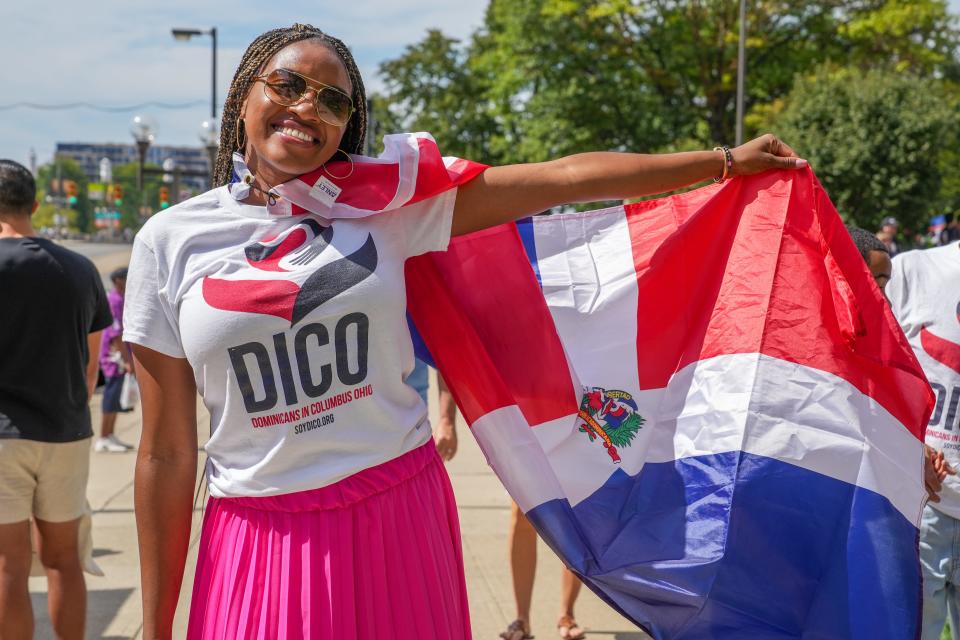
“America is a melting pot. If we don't identify ourselves as anything, then somebody else will define us, and we will be put into a category, fit into a box. We really tried to be intentional about pushing our culture, our language and our beliefs into our children, so that they can keep on that tradition and know where they came from.”
— Zari Carmona, Columbus’ East Side
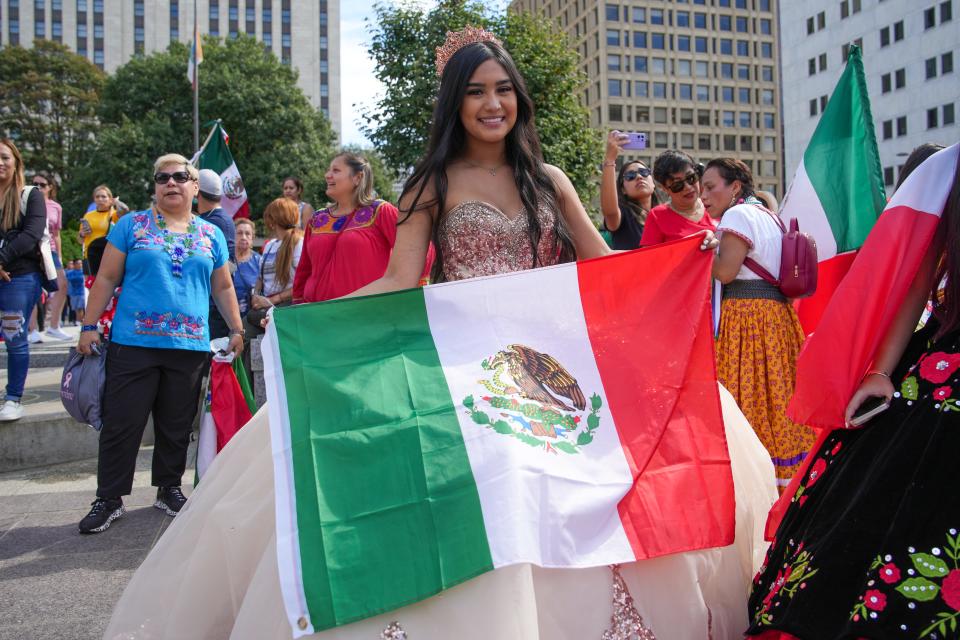
“We’re wearing our quinciñera dresses. My quinciñera was in October 2022, and it was something magical. A quinciñera is a Mexican tradition — you have this big (birthday) party, almost like a wedding, but for a 15-year-old. You grow up with the thought of having a quinciñera, so once it actually comes, it's just really nice.”
— Jasmin Montoya, Columbus’ West Side

“In Hispanic culture, girls have a quinciñera at 15, and normally the boys don't. But because I'm a twin, a lot of my family kind of ganged up on my parents and said, ‘If he doesn't have one to celebrate his 15th birthday, none of us are showing up.’ So it was a great honor to have that celebration with my twin sister.”
— Christopher Crawford-Prado, Columbus

“I was born in Puerto Rico, and I came here as a 5-year-old. I fought in the war in Vietnam. Our community has given a lot to this country — not only to the country as a whole, but also on the military side. We have a lot of Latino folks that have died in all the wars. It’s important to remember them. To me, celebrating our culture is about wrapping our arms around who we are as a people, and making sure that the community at large knows … everything that we've given back to this great country of ours.”
— Henry Guzman, Columbus

“In the past, I would have been scared about celebrating being Latino — we were just trying to mingle. But now, it’s great to be different. … I was born in Peru. We moved here to the U.S. because we won the visa lottery, and I’ve been in Columbus over 20 years. … I've seen Columbus grow a lot and improve so much.”
— Gabriela Loayza, Columbus

“Ohio has opened so many doors to many Latino people. My husband — he is American — and his family have opened so many doors, not just to me but also to my friends. … We are all the same, and we embrace that.”
— Karin Xander, Pickerington
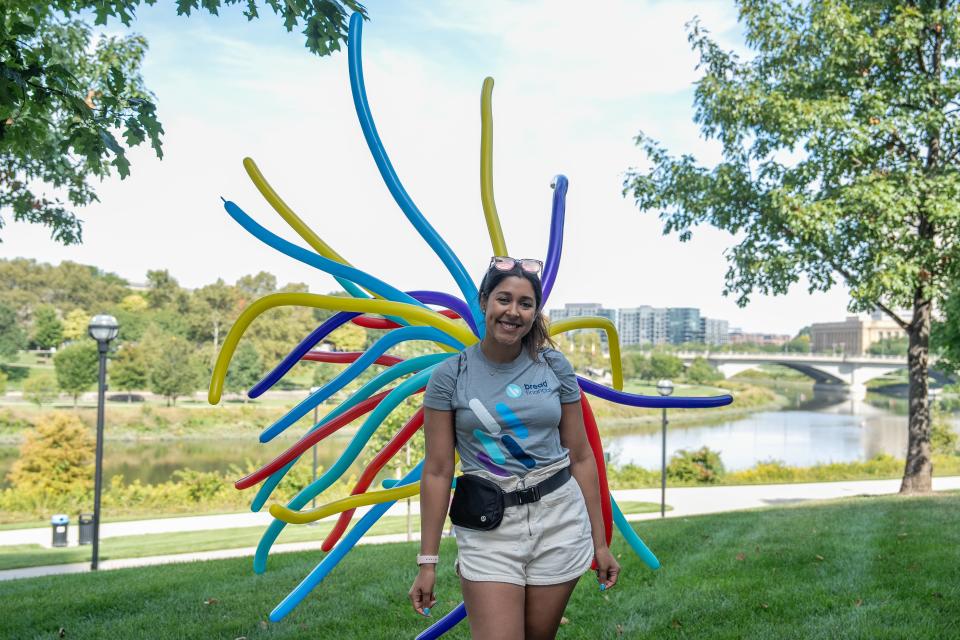
“I feel sometimes like people are afraid of our overwhelming personalities because in the culture here, in America, people keep more space for each other. And we're like, very warm — like, we meet you, and right away, you become family. … I was born and raised in Venezuela and moved to the United States 12 years ago. This is home now.”
— Keyla Ayala, Dublin

“Being Cuban … is such a big part of who I am and how I show up in the world. Every first-generation kid goes through the struggle of the culture that you come from and the culture that you're being raised in, and there’s a tension there because they're at odds with each other sometimes. I think it gives you life skills, with how to translate ideas and how to live in two different spaces at different times — and how you reconcile that within yourself.”
— Columbus City Council member Lourdes Barroso de Padilla

“I was born in Cleveland, Ohio. My mom is from Guatemala. … I lost my Spanish as I was growing up because I didn't prioritize or treasure it the way that I do now. Now, I’ve kind of stepped into my identity. … My mom is Indigenous. She grew up speaking Mayan dialects, and that's something that I don’t want to get lost.”
— Johana Coronado, Columbus’ University District
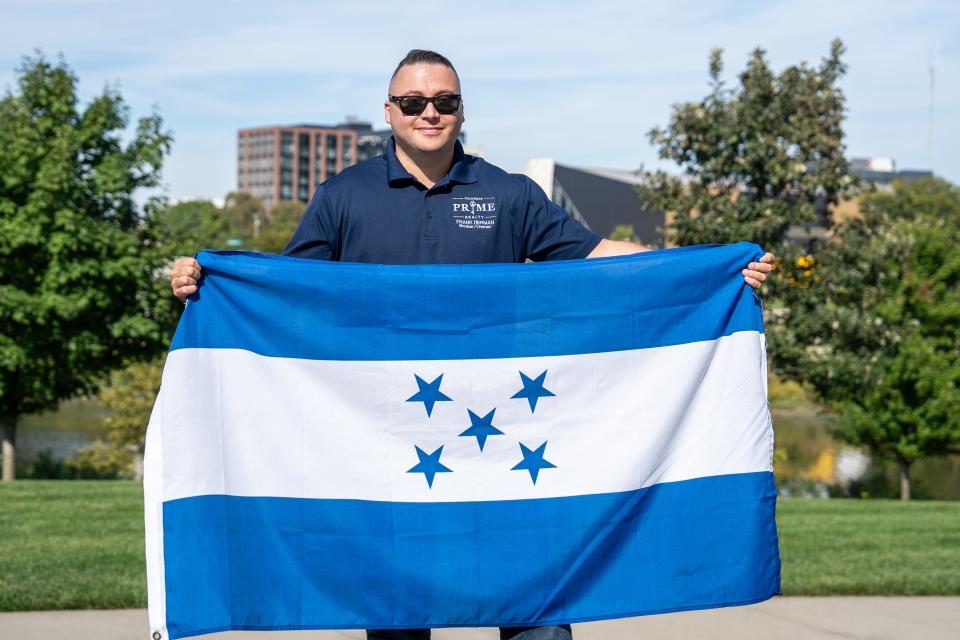
“My mother is from Honduras. … We are real estate advocate leaders passionate about making the American Dream of homeownership a reality for our Latino community through networking, continuing education and awareness.”
— Frank Herman, Columbus

“We are Lambda Theta Alpha Latin Sorority Inc. We are the first and largest Latina sorority in the nation. … I'm a very proud Dominican. … I'm working to help bring all Latinos and other BIPOC (Black, Indigenous and people of color) groups up in the health care system. That's what I'm studying for.”
— Jenavier Tejada, Granville
“You have to find your people when you go to college. I joined a lot of Latino organizations to really create those connections — it was important for me to just reach out to my community.”
— Adriana Mendoza, Columbus’ University District
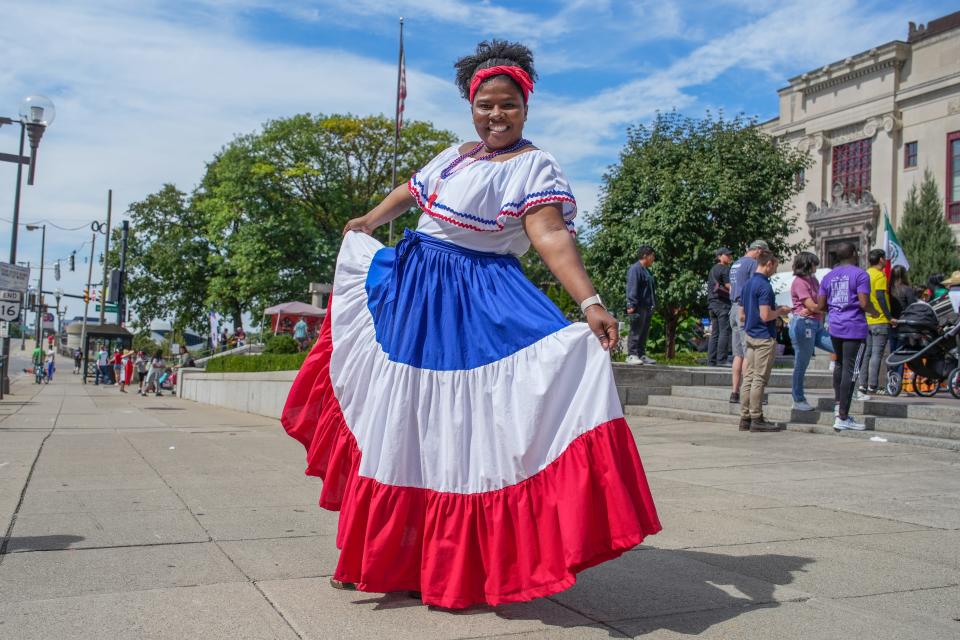
“To be Dominican means to have flavor, to have color, to have a very rich history and to always have a way home. Because we know where we came from, and we always have, like, a trail that we can follow if we lose our way home.”
— Guadalupe Sambois-Taveras, Columbus’ East Side
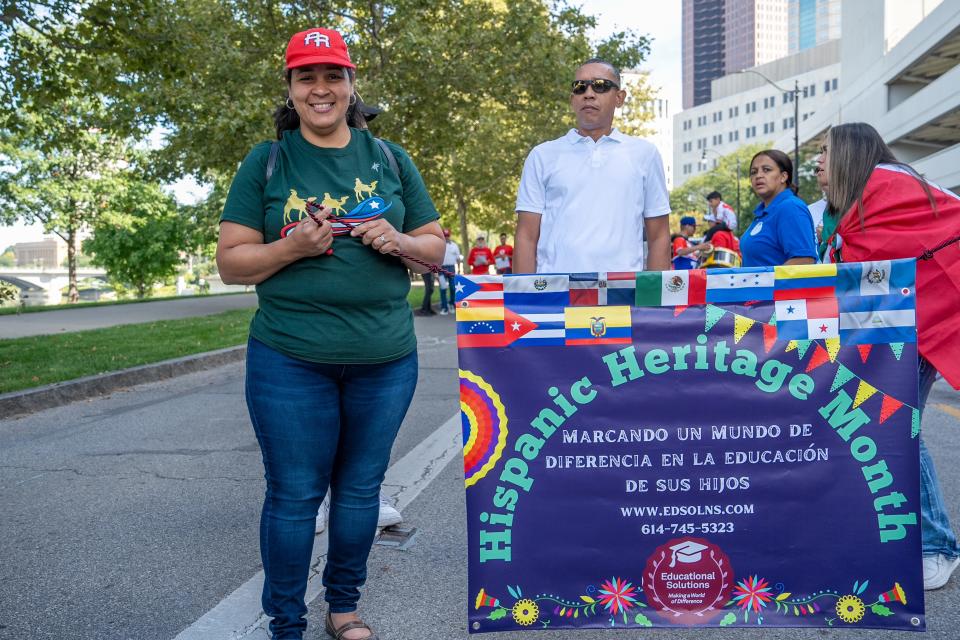
“Who do I protect? Who do I fight for? My Puerto Rican people, my Latino people. I represent Latino as a whole — Mexican, South American, Central American.”
— Erika Rivera, Upper Arlington
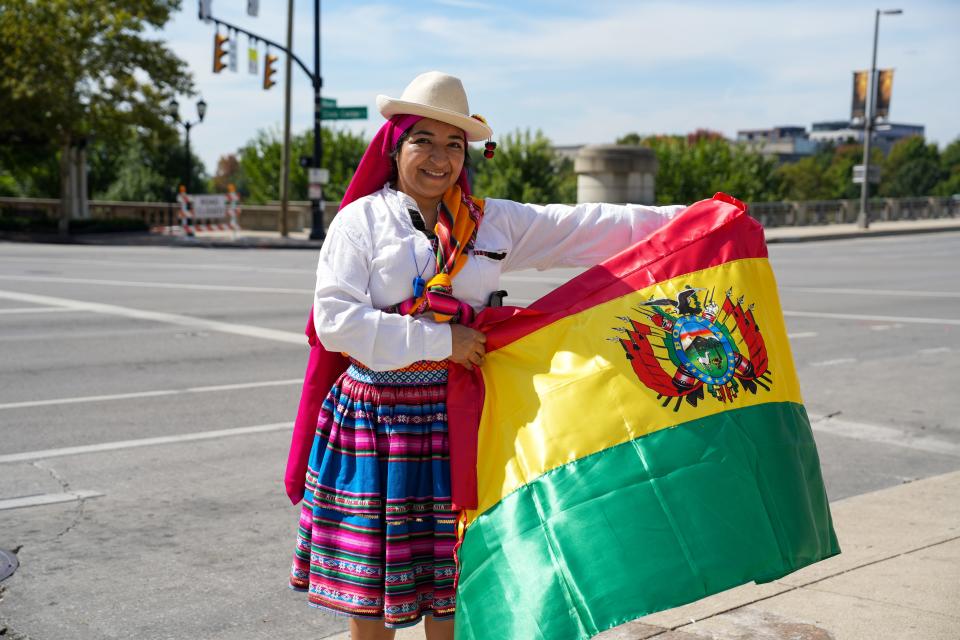
“I’ve been in Columbus 27 years. … In Bolivia, it’s all the time with festivities and celebrations through the year. During Carnavales, which is like Mardi Gras, it’s five days, and we dress up, we party, the kids play with water balloons and we have a parade.”
— Jacqueline Villaroel, Columbus
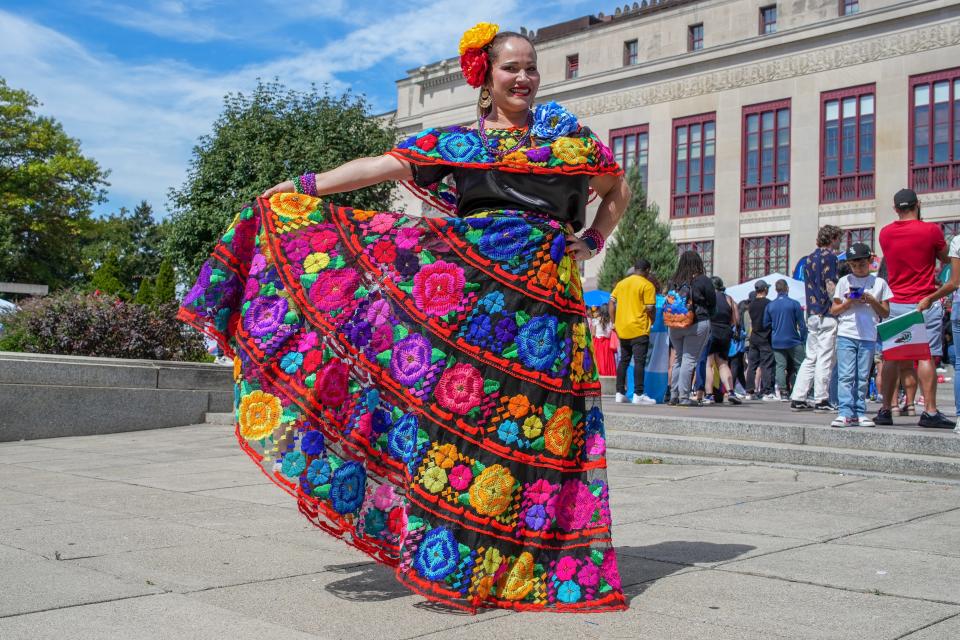
“This dress is from the Mexican state of Chiapas. I'm from Veracruz, but I love this dress because it's very colorful — it represents what Mexico is all about. Chiapas has a lot of Mayan culture, and they have the most beautiful food and dresses.”
— Robertha Fernández, Columbus
Peter Gill covers immigration, new American communities and religion for The Dispatch in partnership with Report for America. You can support work like his with a tax-deductible donation to Report for America at: bit.ly/3fNsGaZ.
pgill@dispatch.com
This article originally appeared on The Columbus Dispatch: Columbus-area Latinos discuss what their heritage means to them

